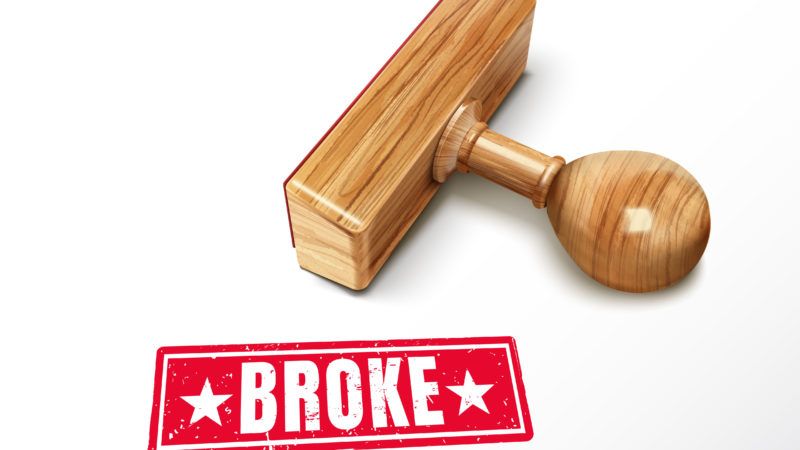A Trillion-Dollar Deficit This Year Is Now Officially the Best Case Scenario
The coronavirus is going to crater tax revenues and hike spending. And the Congressional Budget Office says the deficit was going to exceed $1 trillion even before all that.

As policymakers in Washington continue debating the finer points of what is shaping up to be a $1 trillion coronavirus rescue package, the Congressional Budget Office (CBO) on Thursday offered up a reminder that the nation's credit card was already close to being maxed out.
The CBO's latest 10-year budget projection—which takes into account policies enacted through March 6, and therefore excludes any coronavirus response measures—forecasts a $1.07 trillion gap between how much the government will spend and how much it will take in this year. The deficit will continue to grow in coming years, according to the CBO, until hitting $1.7 trillion in 2030. By then, the national debt will exceed $30 trillion and will be roughly equal to the size of the entire U.S. economy for the first time since the end of World War II.
As bad as all that sounds, it is now an almost impossibly optimistic scenario.
The United States appears to be tilting towards a severe economic downturn. The Trump administration is reportedly preparing for unemployment to hit 20 percent—though Treasury Secretary Steve Mnuchin has denied those reports—amid the COVID-19 outbreak and as a consequence of mandatory "social distancing" measures taken to slow its spread. Major stock indices have fallen by as much as 30 percent in the past month.
Taken together, those things will crater tax revenue from all angles. A surge in federal spending, meanwhile, is all but guaranteed. That's a recipe for higher deficits.
Maybe much higher deficits: the Committee for a Responsible Federal Budget, a nonprofit that advocates for the government to balance its books, says the coronavirus crisis may cause current deficits to double this year.
If that happens, the real culprit is not the disease outbreak or even the government's response to it. The blame falls squarely on federal policymakers from both parties who allowed the deficit to boom in recent years. They are the ones who ignored or laughed off warnings about the rising debt
"It is frustrating to see the picture the CBO's latest baseline paints of the hole that we put ourselves in right at the time when we need as much fiscal flexibility as possible," says Maya MacGuineas, the CRFB's president. "As we move—hopefully quickly—to provide the support to assist with this crisis, it's worth keeping in mind why fiscal responsibility matters. Manageable debt during good times puts us in the best possible position to borrow in the times of need."
Instead, during the final three years of the longest run of uninterrupted economic growth in U.S. history, the budget deficit doubled. Now, it's going to explode.



Show Comments (22)